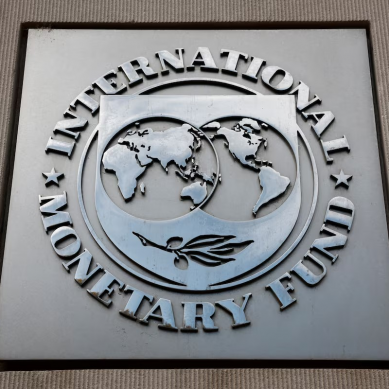Abuse of office or doublespeak: How Trump’s media conglomerate’s becoming a bitcoin reserve
Despite the ready availability of bitcoin exchange-traded funds, a cheaper way to invest in the currency indirectly, bitcoin treasury stocks are proliferating. Within the past two months, figures including Brandon Lutnick, the son of US commerce secretary Howard Lutnick, and David Bailey, a bitcoin evangelist who reportedly advised Trump on crypto policy, have launched their own respective bitcoin treasury vehicles.
Alarm as experts tell FDA to ban cancer-causing talc – widely used in chewing gum – from food and drugs
Talc is a mineral made up mostly of magnesium, silicon and oxygen, according to the American Cancer Society. Some talc contains asbestos, which has been linked to cancer.
Covid vaccine terrorism: US weaponised fear, shame and classification systems to silence wellness educators, doctors, scientists and parents
According to the 2021 report, “the controversy surrounding vaccination mandates for school-age children, employees facing termination for lack of compliance, or perceptions of unfair healthcare treatment for the unvaccinated might trigger increased violence by DVEs.
‘You are on your own’ is new US defence, foreign policy message as it cuts military presence in Africa
In an interview a year ago, Langley emphasised what US military officials have long called a “whole of government approach” to countering insurgency. Even amid setbacks, he defended the US approach and said force alone couldn’t stabilise weak states and protect US interests against the risk of violence spilling out.
South Sudan peace crumbles as world’s youngest nation prepares for another round of bloody war
Speaking to reporters, civilians in both South Sudan and Ethiopia alleged the national army – currently backed by Ugandan forces – has used incendiary weapons in attacks and described dire conditions in displacement camps.
African sees last vestiges of colonialism as UK surrenders Chagos Islands in Indian Ocean to Mauritius in a deal that protects key US base
Prime Minister Keir Starmer said that base, operated by US forces, is crucial for British counterterrorism and intelligence and is “right at the foundation of our safety and security at home.”
Fire experts in Kenya told wildfires are not necessarily bad if indigenous knowledge is fused in their management
Chege observed that fire, from an ecological and social perspective, holds significant benefits right from controlling pests and improving soil quality to regenerating fresh vegetation for grazing. However, he lamented that Kenya’s current fire management approach remains largely reactive, with most responses coming after wildfires have already caused damage.
Pfizer, Moderna ordered to add stronger warnings about possible heart damage from Covid vaccines
The FDA issued the letters the same day the US Senate’s Permanent Subcommittee on Investigations issued a report showing that public health officials under the Biden administration failed to warn the public of the myocarditis risk associated with Covid-19 vaccines and actively downplayed that risk.
In pillorying Trump’s binder to raw racism South Africa discarded, Afrikaners in US are a symbol of what South Africa no longer wants to be
A group of white descendants of Dutch settlers to South Africa landed at Washington Dulles International Airport last week, part of a new Trump administration programme aimed at “Afrikaners in South Africa who are victims of unjust racial discrimination.” The group, Trump officials claimed, were fleeing “white genocide.” On social...
Senate report exposes how federal health officials ‘downplayed’ Covid vaccine risks, failed to warn public
The study documented that as early as February 19, 2021, the Vaccine Adverse Event Reporting System (VAERS) co-managed by the CDC and the US Food and Drug Administration (FDA), showed a strong, statistically significant vaccine adverse event “signal” for myocarditis in males 8-21 years of age. Yet the CDC waited until late May 2021 to alert the public.















